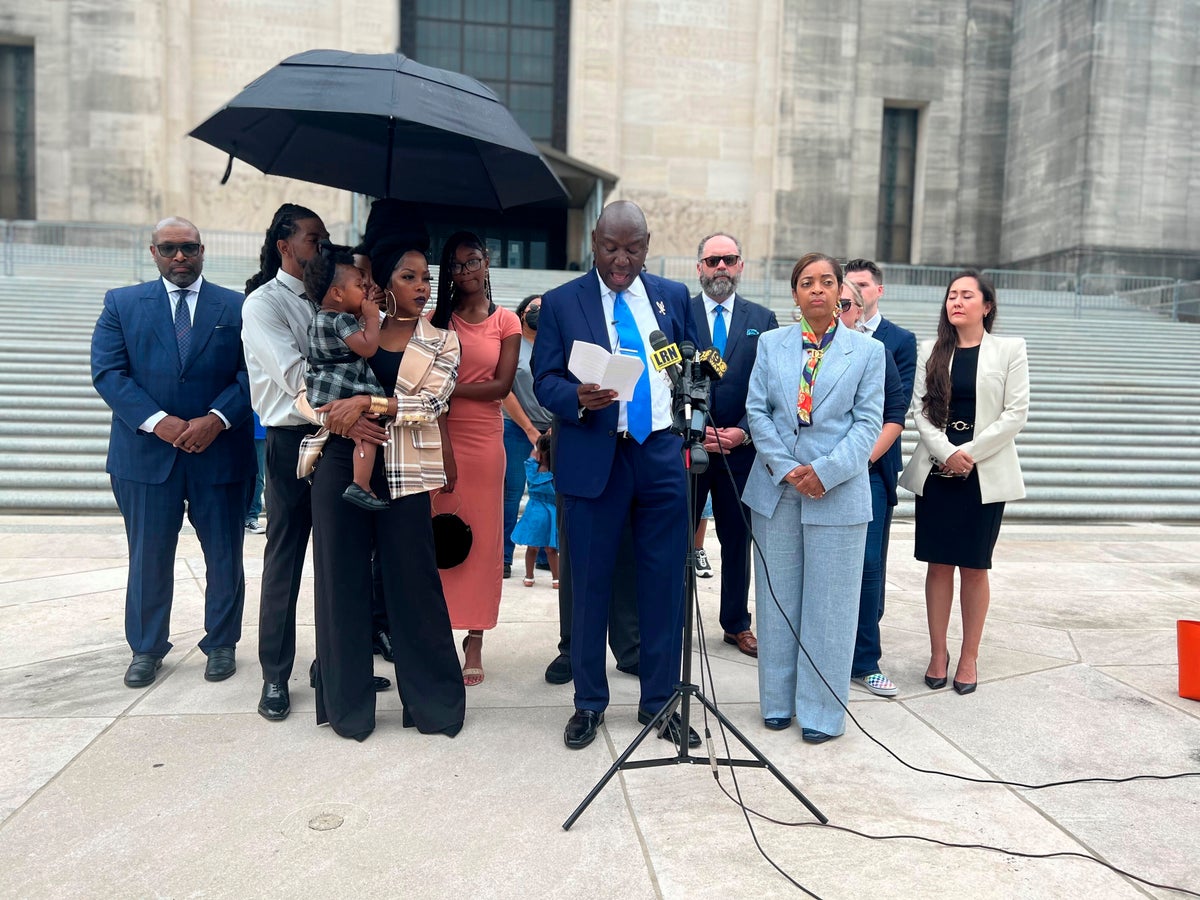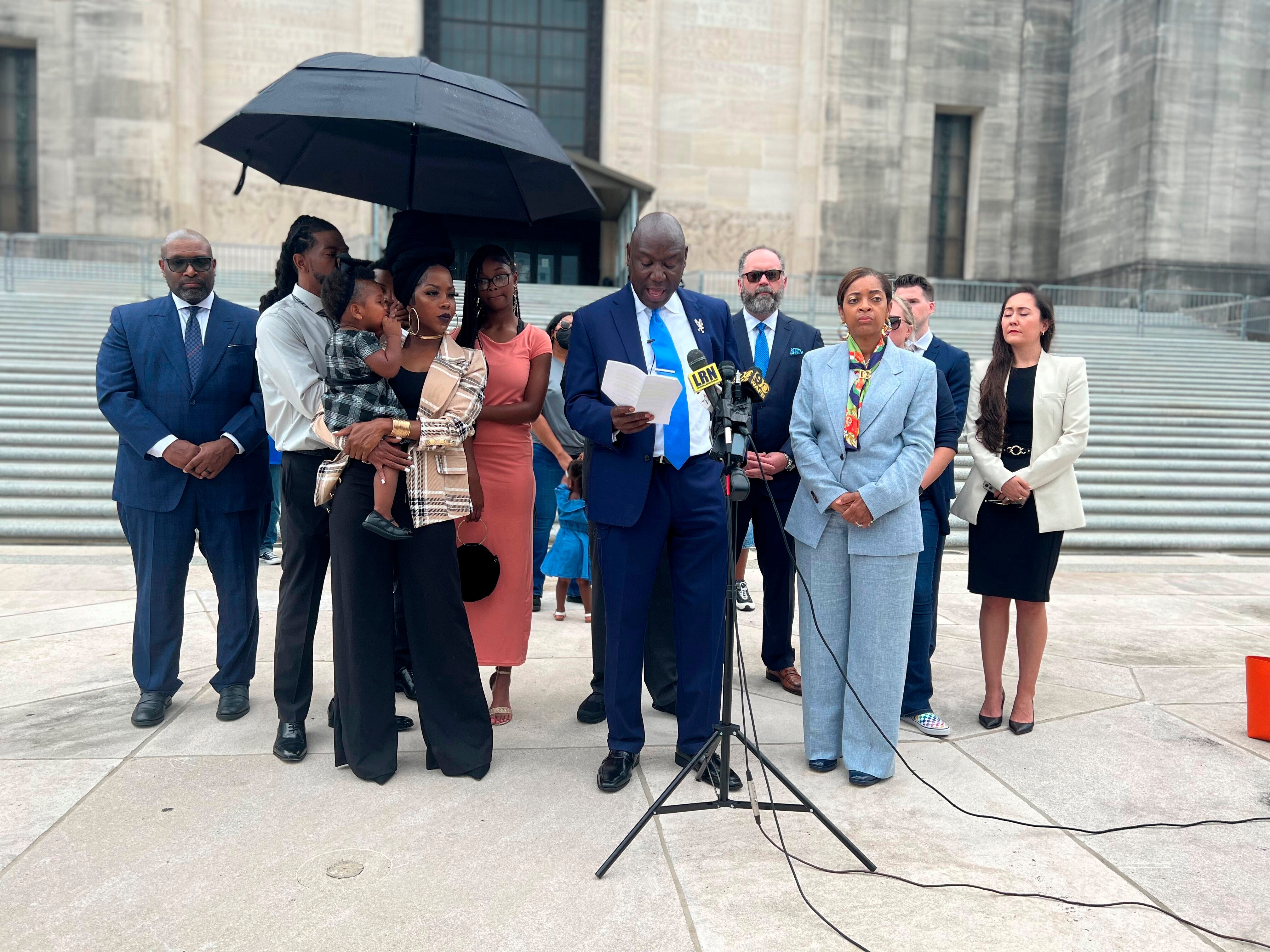
A pregnant woman carrying a foetus that had no skull and no chance of survival was forced to travel more than 1,400 miles to New York for an abortion after she was refused care in her home state of Louisiana.
Nancy Davis, a mother-of-three who was planning to have a fourth child with her partner Shedric, received the devastating news at 10 weeks of pregnancy that the foetus growing inside her womb had acrania.
Acrania is a rare and fatal condition where the foetus’ skull does not form inside the womb, ultimately leading to the brain being destroyed.
If such a pregnancy is carried to term, the baby would die within its first week of life, according to the Fetal Medicine Foundation.
But, despite the lethal diagnosis, Ms Davis said she was denied an abortion in Louisiana because of confusion around the state’s anti-abortion law introduced after the US Supreme Court overturned Roe v Wade.
Six weeks later, she finally underwent the procedure after making the long journey from her home town of Baton Rouge, Louisiana, to Manhattan, New York – where abortion is still a protected legal right.
She was 16 weeks and three days’ pregnant at the time.
Ms Davis spoke out about her ordeal in an interview with Dr Phil airing this week, where she described the six-week period where she was forced to carry the foetus knowing it had no chance of survival as “extremely traumatising”.
“Extremely traumatising, mentally draining in all aspects, it was physically draining, emotionally draining… Very, very emotionally draining,” she told the TV host.
Even though she knows the decision was the right thing to do, the whole process has taken an “emotional toll” on her, she said.
“I felt like we made the best decision for our baby, as well as ourselves,” she said.

“It’s still taken an emotional toll on me. I have problems sleeping at night. I have problems eating. It’s very emotionally draining.”
Prominent civil rights attorney Ben Crump, who is representing Ms Davis, also appeared on the Dr Phil show and shared a clip of the interview on social media.
“I joined Nancy Davis on @DrPhil to discuss the heartbreaking decision she was faced w/ to travel to another state to terminate her nonviable fetus,” he tweeted.
“NO woman should be forced to choose to carry & then BURY their child! Louisiana must clarify medical exemptions under state law!”
Ms Davis first spoke out about her case last month, revealing that – following the acrania diagnosis – doctors in Louisiana told her that she needed to have an abortion but that their hands were tied by the state’s new law.
“The doctors told me that my baby would die shortly after birth,” she said in a gut-wrenching press conference on the steps of the state Capitol in Baton Rouge on 26 August.
“They told me that I should terminate the pregnancy. Because of the state of Louisiana’s abortion ban they cannot perform the procedure.”
She said that doctors told her that – under state law – she would have to carry the baby to term.
“Basically, they said I had to carry my baby to bury my baby,” she said.
“They seemed confused about the law and afraid of what would happen to them if they perform a criminal abortion, according to the law.”

Ms Davis revealed the toll it was taking on her as she was left to continue carrying the non-viable pregnancy while she tried to raise the money to travel out of state for the procedure.
“I want you to imagine what it’s been like to continue this pregnancy for another six weeks after this diagnosis,” she said.
“This is not fair to me and it should not happen to any other woman.”
At the time, Ms Davis planned to travel around 1,000 miles to North Carolina for an abortion but confirmed this week that she had gone to New York instead.
After sharing her experience, more than $40,000 was raised through a GoFundMe campaign to help her with the travel expenses and arrangements to be able to get the procedure.
State senator Katrina Jackson, who authored Louisiana’s abortion ban, has claimed that Ms Davis’s pregnancy would have fallen under an exception to the law and that doctors should have given her an abortion.
But, Ms Davis is just the latest in a growing number of women who are being forced to carry unviable and sometimes dangerous pregnancies, as medical professionals try to navigate the confusion of the post-Roe world and seek to avoid jail time for violating sudden bans and unclear laws.
Back on 24 June, the conservative-heavy US Supreme Court overturned the landmark Roe v Wade ruling, which had cemented abortion as a constitutional right of the American people for half a century.
Since then, Republican-led states have rushed to tighten restrictions and introduce all-out abortion bans, stripping women and pregnant people across America of their reproductive rights.
Louisiana is now one of 12 states where abortion is banned, with no exception for rape or incest.
Some exceptions are made for fatal medical conditions but acrania is not explicitly mentioned on that list.
Mr Crump is calling on the state legislature to hold a special session to tackle their “vague and confusing” abortion laws which he blasted as “clear as mud”.
“Ms Davis was among the first women to be caught in this crosshairs of confusion due to Louisiana’s rush to restrict abortion. But she will hardly be the last,” he said at last month’s press conference.







